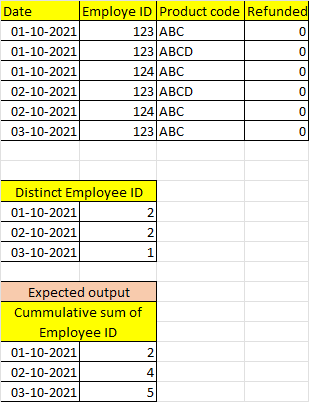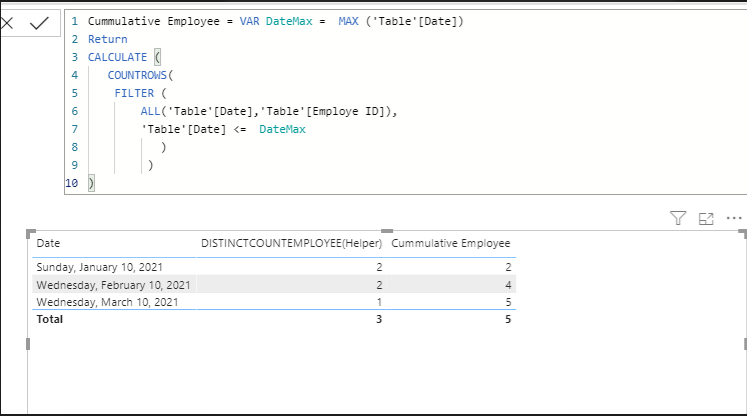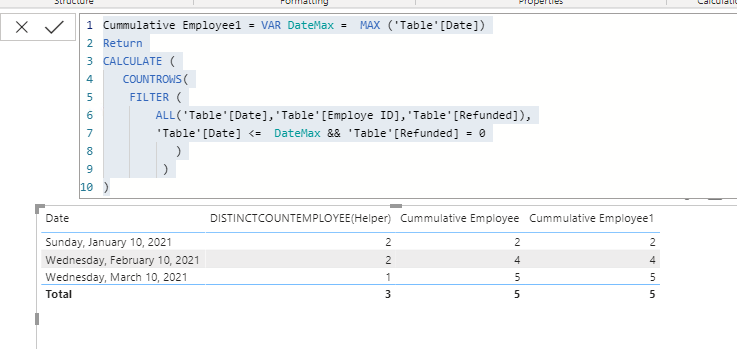There is actually nothing in your second expression that is doing a cumulative sum, you are just evaluating the distinct count measure over a range of dates. If you did a SUMX over the dates I think you should get the output you are after.
Cummulative Employee :=
VAR ABCDE = DATEDIFF(MIN('Table'[Date]), MAX('Table'[Date]), DAY )
RETURN
SUMX( DATESBETWEEN(Time[Day],LASTDATE('Table'[Date])-
ABCDE,LASTDATE('Table'[Date])) , [DISTINCTCOUNTEMPLOYEE(Helper)] )
I also can't see what value the SUMX and SUMMARIZE calls are adding in your other measure. Have you tried a simpler expression like the following? It should return the same result, but with much less overhead.
DISTINCTCOUNTEMPLOYEE(Helper):= CALCULATE( DISTINCTCOUNT( 'Table'[Employe ID] ),FILTER( values('Table'[Refunded]), 'Table'[Refunded]="0" ) )



